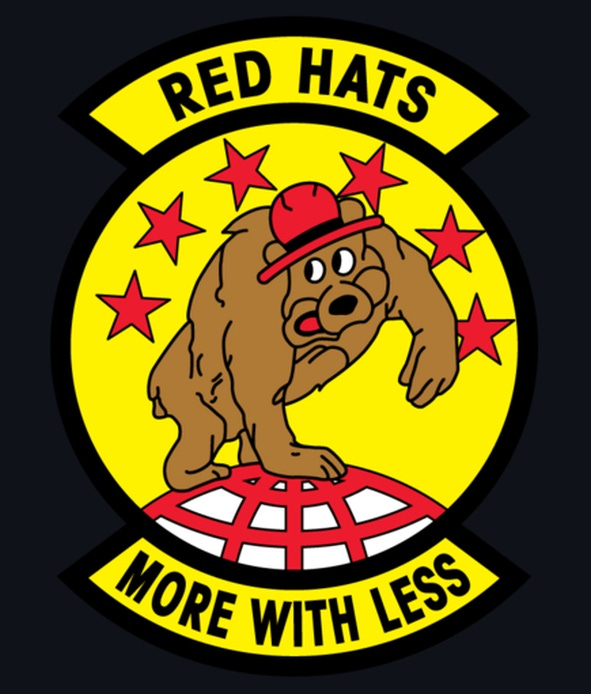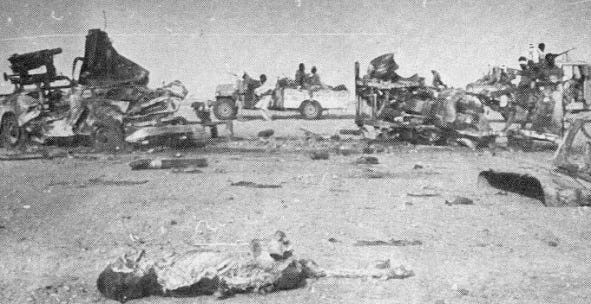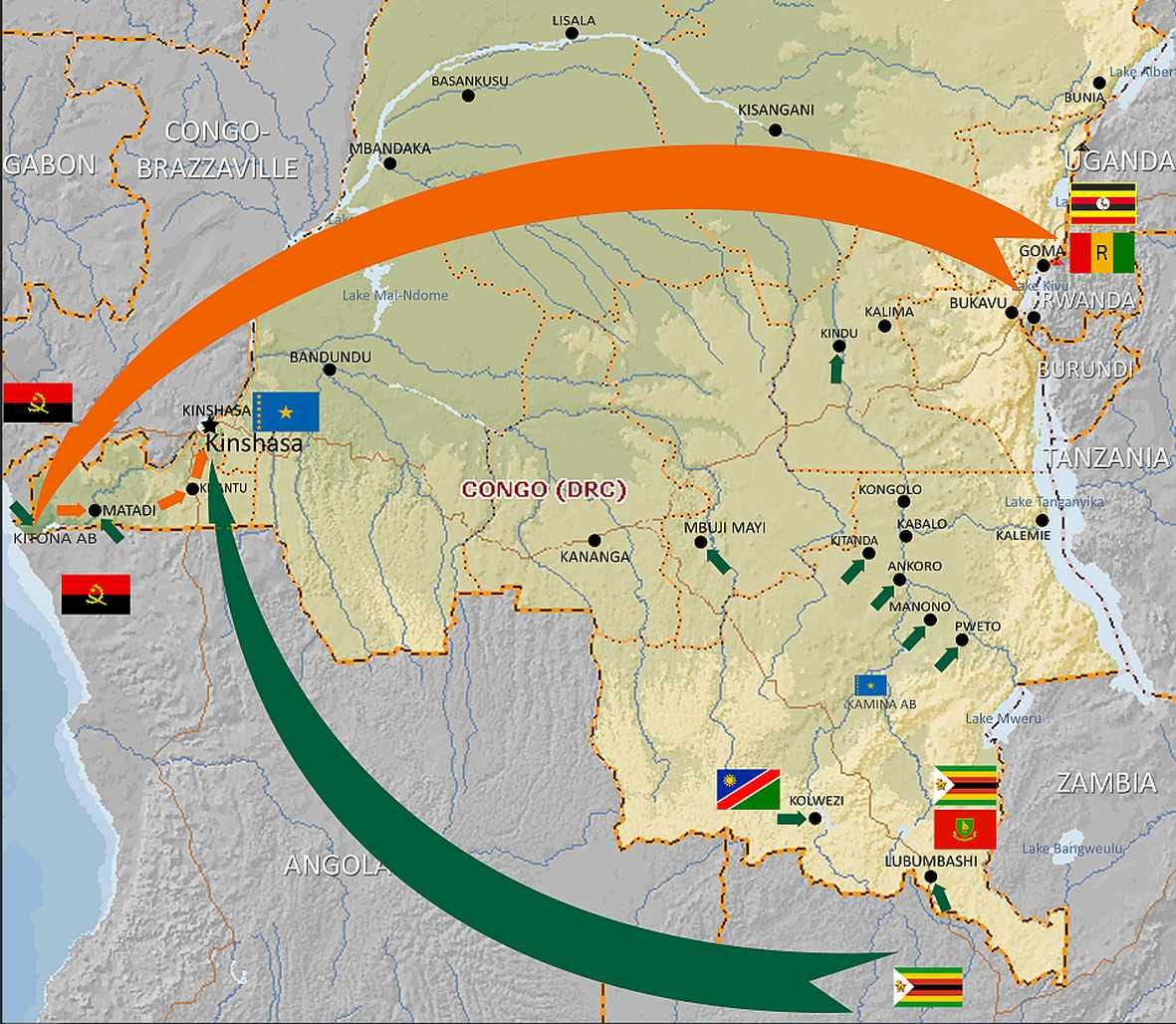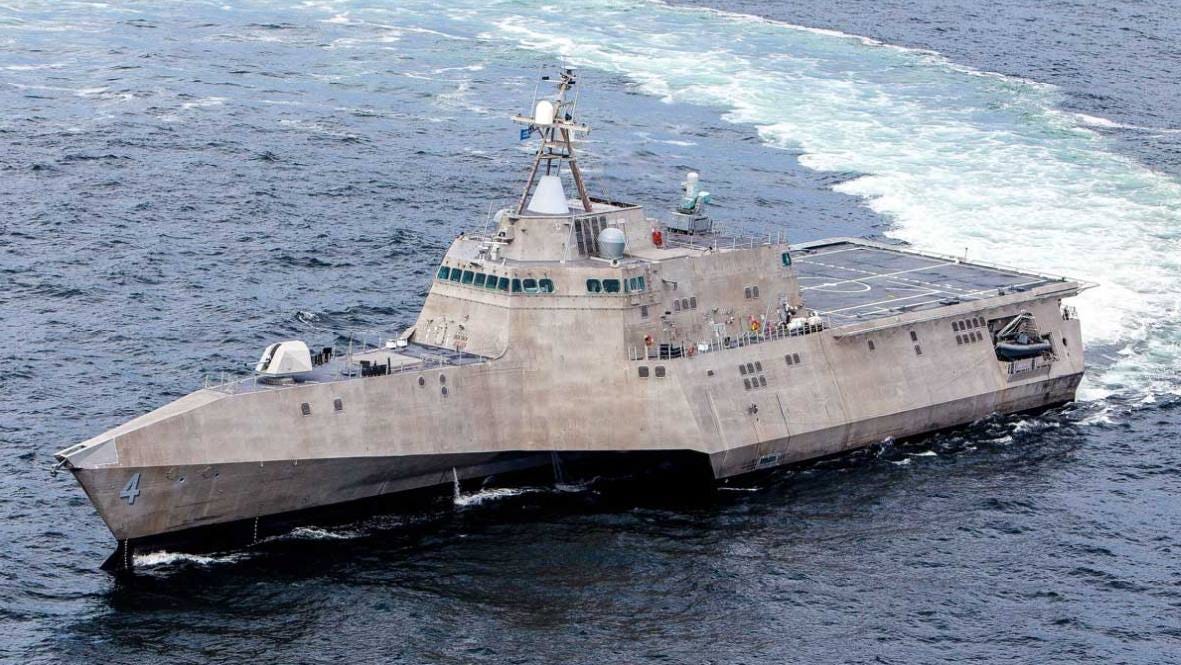Yes, me again…
Today, I would like to start posting something I started preparing already back in… (gulp)… was it November? Perhaps even earlier.
It’s a discussion of a phenomena I’m calling the ‘Professional Military Incompetence’, which I consider for ‘meanwhile, as widespread as Covid’…at least as dirty underwear.
Up front, I’m sure, there are going to be voices wondering why am I posting ‘this’ and then ‘in these days’. After all, the ‘situation’ about the war in Ukraine is ‘heating up’ (especially ‘on the diplomatic scene’) and, at least gauging by what the media is reporting, there are other, much more pressing issues to talk about. And, also (and ‘of course’) at the times this crisis is reaching such levels, others are going to demand me to tone down my critique of the government in Kyiv and the top command of the ZSU, too.
However, my standpoint is that not only that others can and have described Dumpf’s ‘peace initiative’ in a far better fashion than I could (for example: check Andrew Tanner’s Team Trump appeases as Ukraine dismantles an Empire). Foremost: right now, it’s not only the time when one can clearly see how urgently is a reform of both the governance in Ukraine and of the Ukrainian Armed Forces (ZSU) necessary, but also the best time to push the same through. Indeed: the situation is reaching the moment when and where there is the best imaginable time for similar reforms all over Europe, too.
***
DISCLAIMER(s)
This following feature came into being rather gradually, over the last two-three months. It is a result of a number of chats with different friends and co-workers, and dozens of contacts anywhere between Honolulu, Buenos Aires, Cape Town and Singapore (not to talk about plenty of places between Lissabon and Kyiv): thus, I am not going to ‘claim exclusive copyrights’ for all of its contents. On the contrary, I’m going to stress that a lots of ‘input’ it contains is coming from other people.
The feature is containing a few ‘revelations’ (for many), and few statements that might be nothing for light-hearted: not even for people with steadfast stomachs. Thus, permit me to start with my ‘usual disclaimer’: read at your own discretion. Don’t blame me for the content – nor for consequences upon your well-being.
Another thing I’m going to warn about, and to ‘reveal’ is the existence of dozens of ‘informal networks’. For example: ‘e-mail circles’ or such like ‘Facebook-groups’ of current- and former military officers, civilian officials, decision-makers, and similar functionaries within ‘defence sector’, ‘industry’ etc.. I guess most of you have it easy to imagine how such circles ‘work’: this guy (or lady) knows that guy (or lady…), the other guy knows somebody else, and then they exchange e-mails, or URLs to their social media presences… and then they are discussing different topics… ‘privately’... and so, yes, I do ‘admit’: I’m a (patiently lurking, most of the time) member of several such circles.
What you might have a problem to imagine is just what kind of (mis)‘information’ is frequently making circles within such circles; what kind of zombie idiotism is ‘penetrating’ even such minds: so much so, many of them are a ‘perfect mirror’ of not only the modern-day military thinking, but the politics in charge of the same - and that to the degree where related experiences lead to the title of this feature.
The ‘final revelation’ I’m going to start with is something I’ve mentioned, one or another time, a year or so ago: I grew up and became involved in this profession of ‘analysing contemporary warfare’ – and, especially, the so-called ‘OPFOR’ (opposition forces) – at the times of the (First) Cold War. Back then in the 1980s. particularly appreciated were people studying what was known as ‘the Soviets and their satellites’ (if not worse: the word ‘puppets’ was frequently in use). In some cases this went so far that the people in question were learning Russian, wearing Soviet(-style) uniforms, and greeting with zdrastvuy tovarisch. Perhaps nowadays one would call such people ‘obsessed’ with studying the Soviet military arts, thinking, doctrine, tactics etc.: point is that back then they were professional to the bone, highly respected, even ‘famous’. So much so that, just for example, while the mass of them and their work were shrouded in secrecy, the few lucky enough to be in a position to ‘talk in the public’, were selling their books dozens of thousands and were well-known even within the ‘mainstream’ (perhaps unimaginable for younger readers but: back then, there was no internet, no social media, not even ‘texting’ messages from telephone to telephone; therefore books, or at least magazine articles have mattered the most).

***
THE BIRTH OF PROFESSIONAL MILITARY INCOMPETENCE
The first point is this: the (First) Cold War was barely over when all of that expertise based on decades of studying the Soviet and allied military arts, was outright junked – principally because, ‘there’s no Soviet Union any more & Russia is now our friends’ (do not recall anybody to have mentioned Ukraine).
By around 2020, this art was completely forgotten. The ‘best’ I recall were few people with very good connections ‘overthere’ (say: ‘in Moscow and similar places’) who usually did not dare really speaking out, in order not to anger their contacts and sources.
And so, nowadays, the number of people really authoritative about the Russian way of fighting wars – of the Russian way of thinking about warfare – can be counted on fingers of one hand (if as many… perhaps a paw of your cat: no pun intended, but there are only four coming to my mind). And if any of them is known, then only within ‘our circles’: circles of few weirdos like me. The mainstream rarely, if ever, pays attention about them (arguably, in some cases it wouldn’t be easy to get in touch with people in question, simply because most of them are meanwhile working for ‘intelligence’).
What’s worse, in the meantime, the expertise – whether that expressed privately (for example: in above-mentioned ‘e-mail circles’) or publicly, and then both in OPFOR-, but also ‘out of area’ (non-Western) armed forces not only degenerated, but is often outright despised. Usually because of a very specific set of ‘widely accepted truths’ – see: prejudice, predilections, religion and racism – about different countries, nations, and their armed forces.
And so, and already back in the 1990s, at least since 9/11, anybody busying himself with, for example (and in approximate chronological order), ‘Iraqi armed forces’, ‘Serbian armed forces’, ‘Taliban’, ‘al-Qaeda’, ‘Iranian armed forces’, not to talk about all the possible ‘jihadist’ organisations and their military operations was widely damned as a sort of an enemy. A ‘jihadist supporter’, just for example..
…at least I distinctly recall people really flipping out and calling me all sorts of ‘names’ while trying to explain them ‘the Serbs’, so in around 1995-2000; ‘the Iraqis’, say, back in 2000-2003 or so; not to talk about ‘Syrians’ in 2011 or so… Eventually, I’ve lost the count of all the ‘friendships’ – or at least ‘memberships in exclusive e-mail circles’ – that ended in such and/or similar fashion. Usually for reasons like, ‘Oh, you’re wrong, and Clinton, or Bush Jr. or whatever other of similar characters, is such a nice guy and it would be so nice to sit down and have a beer with him’.
Other sorts of awkward behaviour have surfaced, too. An example that strongly influenced much of what I’m doing the last decade or so, was a certain US Navy officer involved in research for… a certain issue that was highly topical in the early 2000s (I’ll avoid being more specific for, I guess, obvious reasons). He was sent to Israel to study what somebody in the Pentagon expected to be ‘relevant experiences’. The gentleman in question was then shown ‘all the related documentation on record’ and came back extremely happy. Indeed: delighted.
Sometimes later, in a casual discussion about what did he learn there, he’s mentioned that, according to Israeli records (shown to him), during the Iran-Iraq War of 1980-1988, the Iraqis deployed exactly 50 French-made AM.39 Exocet anti-ship missiles…
As naïve as I used to be while a tad older than now (for your orientation: I’m getting younger by the day), I couldn’t but burst back with something like, ‘nuts’. Simply because it was already then well-known that the Iraqis spent up to 800 Exocets during that conflict…
I was promptly corrected and told to shut up: no, my data is wrong, while the Israeli records are not only correct but the only ones reliable. Because Israelis are his friends. So much so, they have taken him out for a tour of night clubs of Tel Aviv…
***
Another example would be that of the US Americans and the British in this business (I’m pointing out the ‘two’, but they’re no exception: rather a ‘rule’ strongly influencing so many others) tending to disparage the French (in particular, though not exclusively) as ‘losers’: as people losing one war after the other, and thus having no experiences worth serious studies to offer. Principally because of what happened to France, i.e. the French armed forces, in May 1940. A bit because of what happened to the French in Indochina of 1954, too… Something similar is valid for ‘them’ and Italians, too…
Curiously, the people thinking that way usually have no trace of clue about certain General Joffre assuming command of the French Army in summer 1914 - and promptly firing some 40+ generals whose incompetence nearly broke the back of the force.
If you check around: it seems there’s no comparison in history of English-speaking armed forces. Apparently, in this regards, it’s like with ‘sex and the British’. See: ‘no Sex, please: we’re British’ - and thus, ‘No talk about military incompetence, please: we’re British’… If nothing else, and as anybody who has ever served in the British Armed Forces knows, nobody else ever served anywhere else, and the British veterans know (far) better about about all the other wars, too…
That’s why none of them I met so far knows about the French COIN Doctrine based on experiences from Indochina of the 1950s, which so heavily influenced French behaviour and operations in Algeria, only a few years later – and promptly earned them a clear-cut military victory (though a political disaster at home, too).
….not to talk about the Razzou tactics (even strategy) of raids deep into the centre of enemy military – or even political – system, which emerged at higher military education facilities of France in the mid-1980s, and then dominated the warfare in Africa of the late 1980s and through the 1990s.



Nah: for the majority of Anglophone military experts, the French military arts are simply not worth attention (ah yes, and, don’t worry: that’s very mutual; read, the French have… ‘their own opinions’ about the Anglophone experts). And what (quote) ‘some bimbos there in the African jungle’ are doing: why should anybody care? At most, over the years, one could find one or another statement (less than a handful in total) by very specific US generals serving in the EUCOM (US military command responsible for Europe and Africa; meanwhile, there’s a separate AFRICOM), declaring - for example - certain James Kabarebe of Rwanda for ‘military genius’ and ‘visionary’. But, never an explanation why. Guess, the people declaring Kabarebe for a visionary had no trace of an idea why. Perhaps because, and contrary to the mass of his (military) predecessors, Kabarebe spoke (and still speaks) fluent English, and not a word of French…?


The fact that nowadays Kabarebe is in charge of (since 1996) already the fourth or fifth Rwandan invasion of the neighbouring Democratic Republic of the Congo - which captured an area approximately the size of France for Rwanda (a country the size of the Lower Austria, also known as ‘African Israel’, or ‘Sparta of Africa’) - that’s ‘irrelevant’, you know …because poor little Rwanda is so much a victim of genocide, but especially ‘democratic’, and ‘in need of relief aid’, and ‘our ally’… and thus can’t do anything wrong… (sounds familiar, doesn’t it?) - and then of course, Ukraine is much more important and thus we’re not going to discuss what’s up in the DR Congo right now.
…at least officially, nobody and his/her next kin can care less about the Congolese mineral wealth worth (along an estimate by certain think-tank named Kissinger & Associates from the late 1990s) US$ 35 Trillion…
It’s similar in regards of several other wars of the same- and more recent times. A very good example of not only an ‘understudied’, but outright ignored war of the 1990s and 2000s would be that in Sri Lanka. Indeed, the situation regarding that fracas cannot be any clearer: at the time ‘the West’ was busy fighting ‘goat herders of Hindukush’ or ‘al-Qaeda beasts of Iraq’, and ‘genious General Petraeus’ was running his ‘surge’ and whatever else: why should anybody care if the last decade of the war in Sri Lanka was characterised by heavily fortified and mined frontlines, and operations of ever larger ‘conventional’ military formations (see: brigades and divisions, and that on both sides)?
…or about the fact that even the official histories of the Sri Lankan Army are bristling with belittling their own military commanders for corruption and incompetence?
***
Why am I wasting your time with explaining all of this?
On one hand, these are just a few of ‘typical’ personal experiences coming to my mind when discussing military incompetence: lack of even the most basic knowledge about recent experiences in doctrine, strategy and tactics - so widespread nowadays, that weirdos like me cannot but wonder how comes anybody there has earned his epaulettes (or degrees from highly esteemed universities) without having a trace of clue about above-mentioned affairs? On basis of studying von Manstein and Zhukov from 80 years ago?
Foremost, the point is: the more one studies the contemporary military history, the more solutions for problems of Ukraine and Europe of our days one can find.
Instead, the armed forces of ‘the West’, the constantly growing armies of think tanks and widely-praised Experten advising them the last two decades, ceased paying attention not only about Croat experiences from their war of independence in 1991-1995, or never paid attention about Sri Lankan experiences at all, but even about such experiences like when the US armed forces proved unable of running their own version of ‘hearts and minds’ campaign in Afghanistan – ultimately leading to the US (and ‘the West’) losing that war – primarily because troops on the ground began systematically disobeying their orders. ‘Grunts’ simply knew better than generals. Instead, the US Americans tend to praise their ‘modern-day genius strategists’, like General Petraeus, the highly-praised ‘victor of Iraq’ – who, actually, merely spent hundreds of US Dollars to bribe different Sunny tribes and turn them against the al-Qaeda…
***
Forget about all of that. It’s as ‘simple’ as it is ‘logical’: why should anybody in ‘the West’, and why should Ukrainians study Bobetko’s (and team’s) reform of the Croat Army in 1992-1995? If at all, then ‘everybody knows’ the Croats didn’t defeat the Serbs on their own, but it was some private military company from the USA. ….or Fonseca’s reforms of the Sri Lankan Army of the early 2000s? The LTTE was ‘peanuts’, (quote) ‘just some rice-eating guerrilla in the jungle’. Why study - now I’ll venture into outright blasphemies - Zimbabwean experiences in countering the (second) Rwandan invasion of the DR Congo (the one of 1998), and the conversion of the Zimbabwean Defence Force from a service custom-tailored to run Fire-Force-style counterinsurgency operations into one capable of maintaining a 600-kilometres long frontline through jungle (and over countless rivers) in the centre of Africa by mere 6,000 troops? After all, ‘even’ the Rwandans ‘know’ it ‘wasn’t Zims who defeated them, but (non-present) Angolans…
Foremost, all of this has happened too far away, is hard to research and, well… out of sight out of mind…
As result, neither positive nor negative experiences of recent times are widely known. At most, all the noble, highly educated and cultivated, modern-day ‘warriors of the West’ (see: Lieutenant-Colonels, Colonels and Generals in charge of units making our armed services) and armies of highly-educated people working for dozens of think-tanks advising them - are all 1000% sure: all these experiences are nothing worth their attention. Probably because ‘such circumstances’ are outright ‘unthinkable’ for any ‘Western’ armed force…?
Is it then surprising if such experiences are unknown – and thus considered for ‘irrelevant’ (i.e. ‘not worth studying’) – within the armed forces of Ukraine, too?
Of course it is not.
(…to be continued…)





I'll tell you a word on the state of the Ukrainian official military science. There's a book we (as ZSU officers) have to study, the last edition is year 2024. There's a table there for combat effectiveness calculations based on the main weapon type. The table is filled with such Enemy Weapon Systems as... MGR-1 Honest John, M60 MBT and АН-1S Cobra TOW (sic).
Nobody cares to study this trash, obviously.
The fact that military establishments are out of touch is not unusual. Ever since the 'victory by the British' over Napoleon - always forgetting crucial allies - and fortified by endless myths about wars won at home and abroad (please don't mention Indians or Zulus or many another contrary instance), the British in general believe implicitly in the superiority of their armed forces. So why on earth would they want to try to learn something new from some ignorant foreigners who live somewhere else?
At the beginning of the last two World Wars the British establishment was still fighting previous ones. Now the western 'allies' are busy preparing a Munich for Ukraine, wilfully ignoring deliberate, targeted and ongoing provocation by a Russian president obsessed with his paranoid delusions. Instead of taking unpopular decisions to fortify military expertise and materiel - explicitly, at least to supply ever more relevant arms and ammo to Ukraine, desperately attempting to hold the line for the West - European leaders witter and prevaricate like elderly vicars too terrified of offending either Pudding or Dump.
Obviously the USA has cut and run, a coward of a president too preoccupied with a grandiose view of himself as deal-maker to actually face truth, and can be largely written off for the next four years at least. Which means an essential and urgent task for Europeans is to unite behind a formidable and clear-sighted leader...
Oh dear...